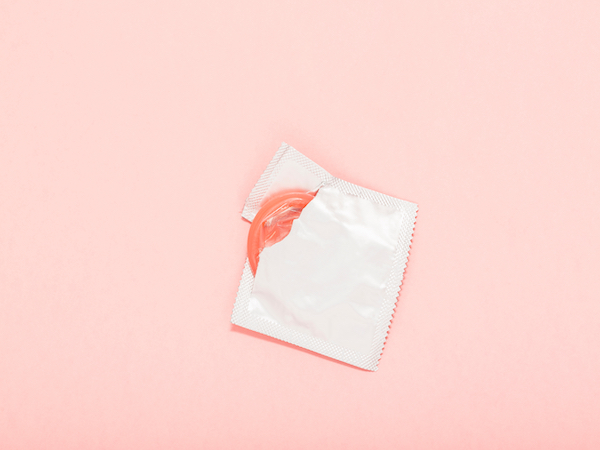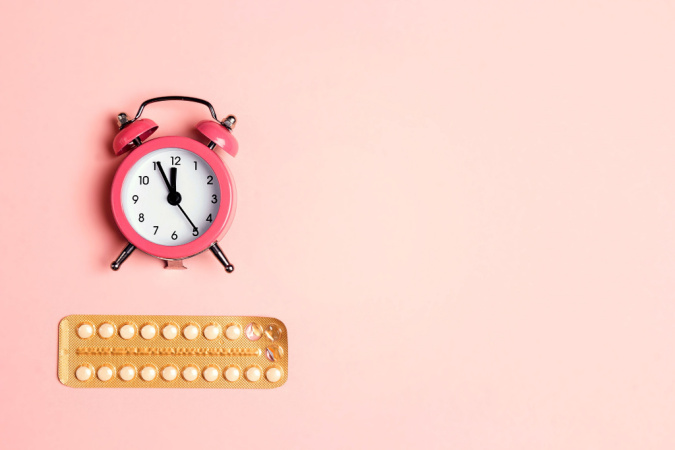Birth control is a crucial part of many people’s lives, offering control over reproductive health and the freedom to plan for the future. However, concerns about how birth control affects weight can be a source of anxiety.
This blog aims to provide clear, comforting insights into what birth control does to your body and how it might impact your weight, whether you’re starting, continuing, or stopping its use.
Can Birth Control Cause Weight Gain?
They’re many common worries about birth control: What does birth control do to your body? Which birth control causes weight gain? How does birth control make you gain weight? Can changing or stopping birth control cause weight gain?

Get birth control delivered to your door
Fast online assessment with a Canadian nurse practitioner. Choose your method, get your prescription, never run out.
While there’s a lot of information out there, let’s break it down with the most reliable findings.
Research Evidence
Extensive research shows that the majority of birth control methods do not cause significant weight gain. The perception that birth control leads to weight gain is widespread, but the data suggests otherwise. Most studies have found no substantial link between hormonal contraceptives and considerable weight gain.
Through this evidence we can also conclude that birth control does not cause weight loss, and any weight loss after halting birth control may be coincidental or circumstantial in nature.
Individual Variability
One of the most commonly asked questions people ask when starting a new birth control is “what does birth control do to your body?” The truth is that individual experiences can vary widely from person to person.
Some people report minor weight changes when starting a new birth control method. These fluctuations are usually temporary and often not directly caused by the contraceptive itself. Instead, they might be due to other factors such as lifestyle changes, dietary habits, or natural weight variations.
Types of Birth Control
Different forms of birth control can have varying effects. “Which birth control causes weight gain?” Not many. In fact, only the Depo-Provera shot has any associated risk of weight gain.
To clarify, the Depo-Provera shot has been associated with weight gain in some users; particularly during the first year of use. On the other hand, most combination oral contraceptives (the pill), hormonal IUDs like Mirena or Kyleena, and progestin-only pills (mini-pills) typically do not show a significant impact on weight.
- Injectable Contraceptives: Some users report weight gain, especially in the first year.
- Combination Oral Contraceptives (The Pill): Most studies do not show significant weight gain, but individual responses can vary.
- Hormonal IUDs : Generally not associated with weight gain, though some users report minor changes.
- Progestin-Only Pills (Mini-Pill): Minimal evidence of significant weight gain, but individual experiences may differ.
- Implants : Some users report weight gain, but this is not consistent across all users.
- Patches and Rings: Similar to combination pills, not typically associated with significant weight gain, but individual experiences can vary.
Underlying Factors
It’s also important to consider other factors that might influence weight changes. Diet, exercise, stress levels, and sleep patterns can all play significant roles. Sometimes, weight gain attributed to birth control might actually be due to these underlying lifestyle factors.
Professional Guidance
If you’re concerned about weight gain before and/or after starting birth control pills, discussing this with your healthcare practitioner is crucial. They can help you find the most suitable option and offer personalized advice based on your health and lifestyle needs.
Can Birth Control Cause Weight Loss?
On the flip side, some wonder if birth control can cause weight loss. Here’s what we know:
Lack of Evidence
Currently, there is no substantial scientific evidence to support the idea that birth control causes weight loss. Hormonal contraceptives might affect appetite and water retention, which can lead to temporary weight changes, but not sustained weight loss.
Individual Responses
Just as with weight gain, some individuals might experience minor weight fluctuations when starting or changing birth control, but these changes are typically not due to the birth control itself.
Hormonal Changes
Hormonal birth control can influence appetite and water retention. While this might lead to temporary changes in weight, these effects are generally not significant or lasting.
Overall Impact
Ultimately, weight loss is more likely influenced by factors such as diet, exercise, and overall health rather than the use of birth control. If weight loss is a concern or goal, discussing it with your healthcare practitioner is important to ensure your birth control method aligns with your health and wellness plans.
Does Stopping Birth Control Lead to Weight Gain?
Many wonder if stopping birth control can cause weight gain. Here’s what the evidence suggests:
- No Direct Evidence: There is no substantial scientific evidence to suggest that stopping birth control directly leads to weight gain.
- Hormonal Adjustment: Your body may go through a period of hormonal adjustment after stopping birth control, which can affect appetite and water retention temporarily.
- Reversion to Baseline: Any weight changes experienced while on birth control usually revert to baseline once the hormones are out of your system.
- Lifestyle Factors: Weight changes after stopping birth control are more likely due to changes in lifestyle, diet, or other factors rather than the cessation of birth control itself. Birth control does not directly cause weight loss.
- Consult Your Healthcare Practitioner: If you notice significant weight changes after stopping birth control, discussing this with your healthcare practitioner can help rule out other underlying causes.
How to Reduce the Risk of Weight Gain
Whether or not you are using birth control, maintaining a healthy weight involves a balanced lifestyle. Here are some tips to reduce the risk of weight gain:
- Balanced Diet: Maintain a diet rich in whole foods, including fruits, vegetables, lean proteins, fiber, and whole grains. Avoid excessive sugar and processed foods.
- Regular Exercise: Engage in regular physical activity, including a mix of cardio, strength training, and flexibility exercises.
- Hydration: Drink plenty of water throughout the day to stay hydrated and support metabolism.
- Monitor Portions: Be mindful of portion sizes to avoid overeating, even with healthy foods. Birth control does not make you hungrier or less hungry, so these cravings are usually related to mental health factors, rather than birth control side effects.
- Stress Management: Practice stress-reducing techniques such as mindfulness, meditation, or yoga, as stress can contribute to weight gain.
- Sleep: Ensure you get enough quality sleep, as poor sleep can disrupt hormones related to hunger and metabolism.
- Consistency: Stick to a consistent routine with your diet and exercise to maintain a healthy weight.
- Medical Consultation:If you are concerned about weight gain related to birth control, consult your healthcare provider to discuss alternative methods or additional strategies tailored to your needs.




